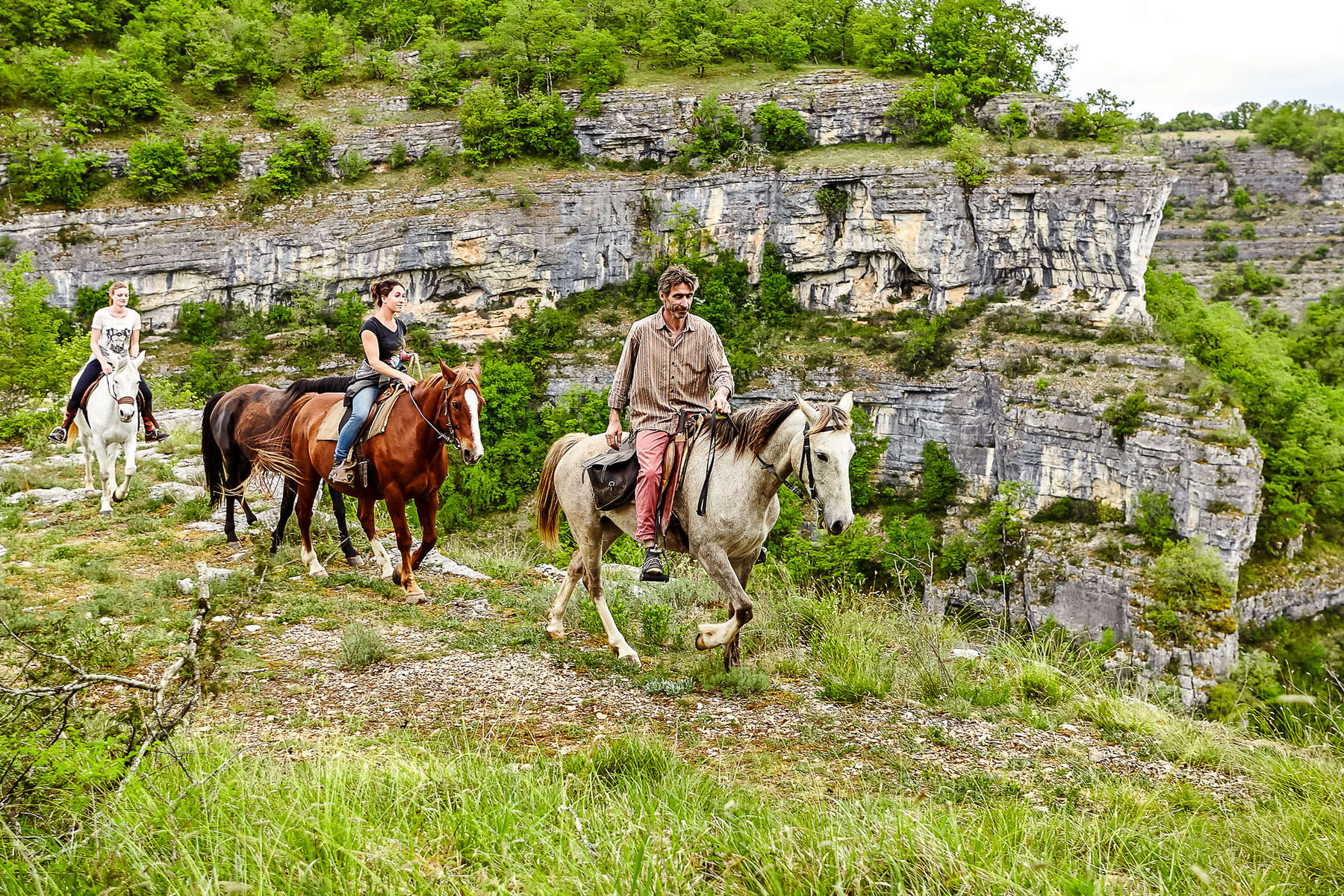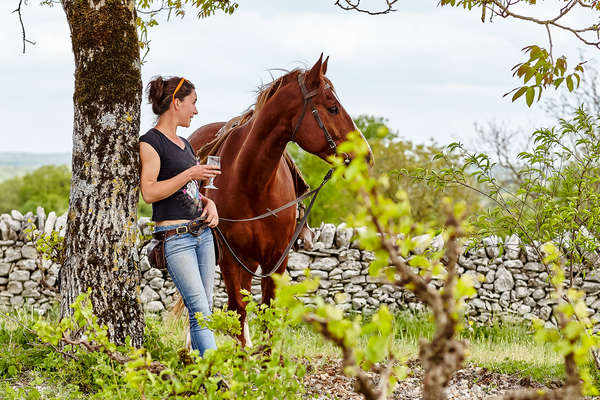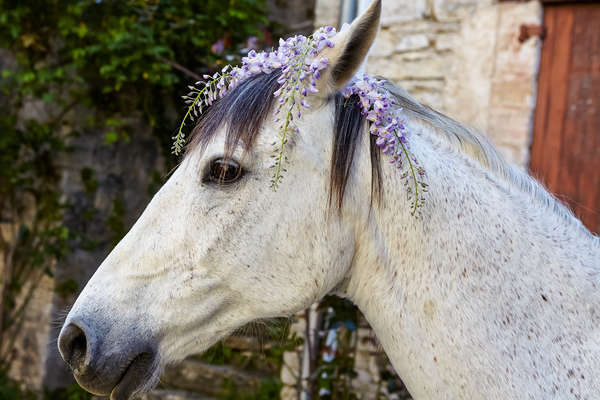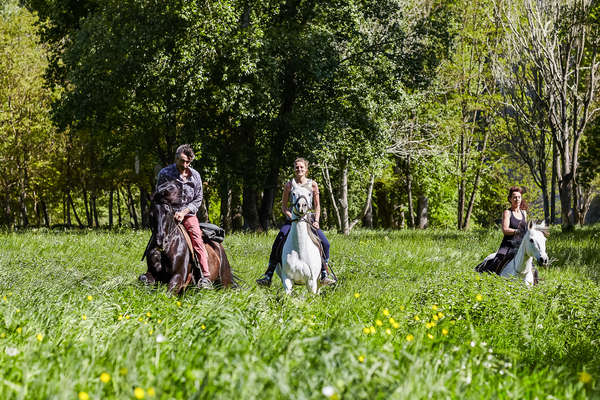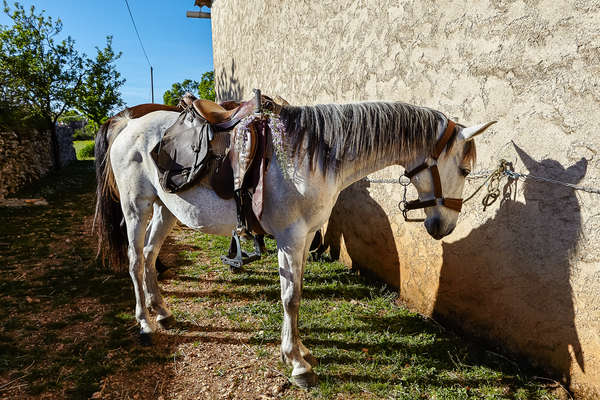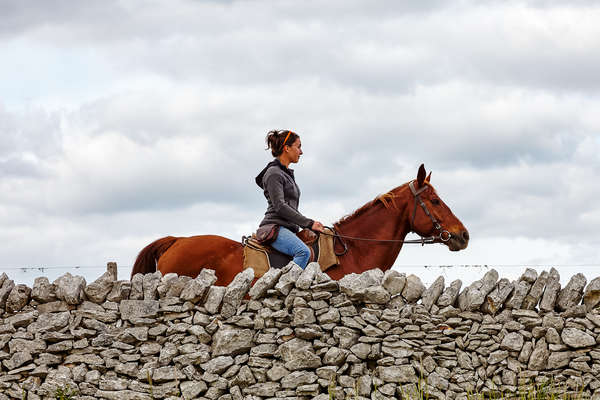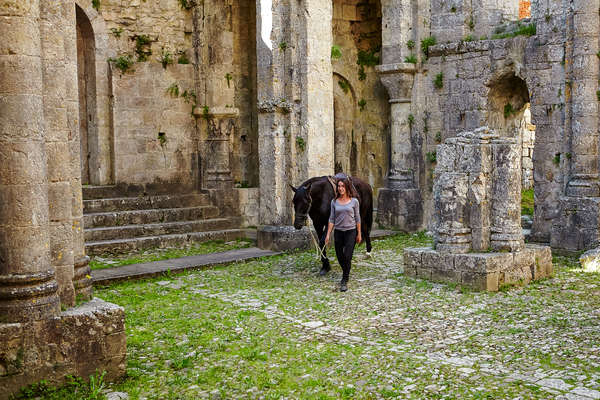Comfort
During the trail you will be staying in guest houses or gîtes. The rooms are shared between 2 to 3 riders.
Gite accommodation in France don’t typically provide bed linen or towels, so please make sure to bring a sleeping bag and your own towel.
Meals
Typical French breakfasts (toast, butter, jam, juice, tea/coffee).
At lunch you may stop at a local restaurant, while on some other days you can expect picnic lunches (sit down picnics). They can consist of a variety of salads, quiches, cheese, and more.
Dinners will most often be prepared by the hosts at the guest houses.
Climate
Summers are very hot with little rainfall, with temperatures often exceeding 30°C. Winters vary, often with sub-zero temperatures and night frosts, but the climate remains relatively mild. Please note that in this area there is a risk of summer thunderstorms.
Tips
In France, it is customary to tip at coffees and restaurants - usually this is by rounding up the price and not mandatory. You may wish to leave a tip with the guide who can split it amongst all members of the team - this is not obligatory and is entirely at your discretion (we recommend €30-40 per person, split between the team)
Packing list
Keep in mind that your luggage will be transported by a back-up vehicle so please travel light.
Make sure to adapt the list according to the season.
Head
- A riding helmet: It is strongly recommended and often mandatory. Manufacturers (GPA, HKM, LAS Helmets, Lamicell, Troxel, Equithème...) now offer ventilated, solid and light riding helmets that are pleasant in all latitudes. There are also protective shells to put under your hat (Ranch & Rider, Lexington Safety Products) or western helmet hats (Troxel).
- Cap or hat for the sun (essential)
- A bandana, scarf or shawl to protect the neck or face from dust and sun
- A pair of high protection sunglasses
Upper body
- Cotton T-shirts + long-sleeved shirts (for protection against the sun) or T-shirts made of fast-drying technical materials.
- 1 light fleece or equivalent jumper or 1 warm fleece or equivalent
- 1 waterproof jacket.
Legs
- 1 or 2 pairs of riding pants
- 1 change of trousers (hiking or jeans or equivalent)
- 1 pair of waterproof over trousers (made from Goretex or equivalent)
- Non-irritating cotton or synthetic underwear
Hands and Feet
- Comfortable riding boots. We recommend short boots with half chaps but you may wish to take long chaps. We don't recommend taking your favourite long leather boots in case they get damaged
- Lightweight shoes or trainers for the evenings
- Several pairs of socks
- Gloves - your hands are particularly exposed to the sun, wind or rain whilst riding
Sleeping
- Sleeping bag
Other useful items
- Water bottle (1.5 litres or 2 equivalent)
- Headlamp, batteries and spare bulbs
- Complete toiletries (towels not provided)
- Earplugs may be useful
- Swiss Army knife or equivalent
- Camera (with spare battery)
Pharmacy
As a precaution, please indicate any allergies to medication in your pharmacy.
This is a typical pharmacy, to be adapted according to your travel habits
- Personal medication
- 1 Broad-spectrum antibiotic
- Aspirin or doliprane
- Anti-diarrhoea medication
- Vitamin C
- High protection sun cream for lips and skin
- Eye drops
- Moisturising cream
- A roll of plaster
- 10 cm wide elastic adhesive bandage
- A box of adhesive bandages
- Ready-to-use disinfectant packs
- Mosquito repellent cream and spray
- Compeed for blisters.
Our Recommendations
- Backpacks cannot be worn whilst riding. We recommend a small bumbag or a coat with pockets so that you can carry small items with you during the day (camera, sunscreen, lipbalm etc)
- We recommend travelling in your riding boots and carrying your hat and some riding clothes in your hand luggage - then if your luggage goes astray you are still able to ride!
- Carry a copy of your passport and insurance documentation with you.

